 DP World, Deendayal Port and Nevomo join hands to Pilot Magnetic Rail Cargo Movement in India
DP World, Deendayal Port and Nevomo join hands to Pilot Magnetic Rail Cargo Movement in India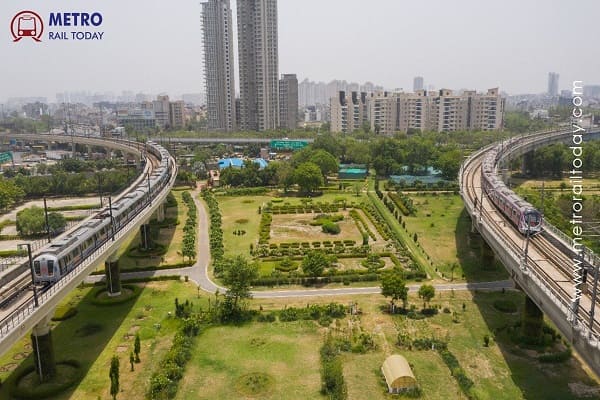 DMRC signs MoU with MapMyIndia to intergrate Delhi Metro Rail Network with Mappls App
DMRC signs MoU with MapMyIndia to intergrate Delhi Metro Rail Network with Mappls App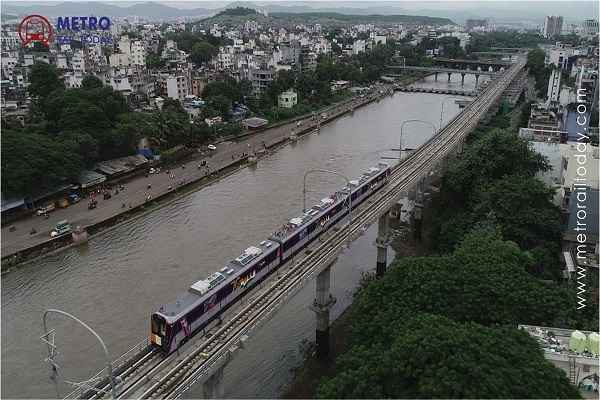 Maharashtra approves Tripartite MoU for Pune Metro Phase 2 Extensions
Maharashtra approves Tripartite MoU for Pune Metro Phase 2 Extensions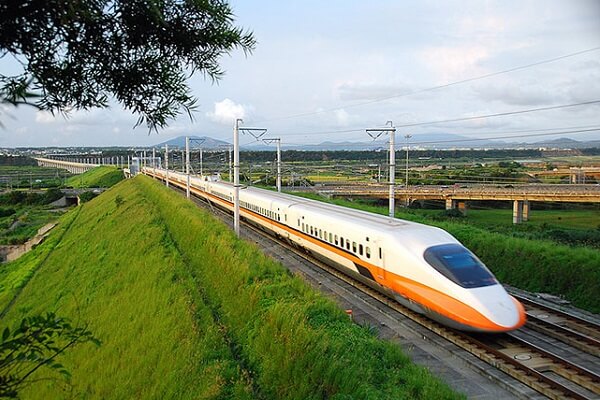 Andhra Pradesh proposes Bullet Train Link to connect Amaravati International Airport
Andhra Pradesh proposes Bullet Train Link to connect Amaravati International Airport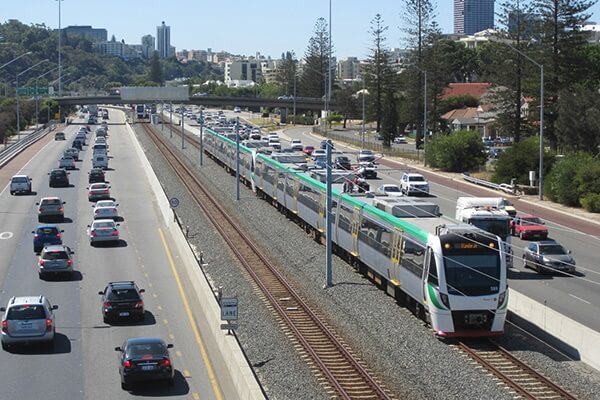 SYSTRA acquires BG&E to strengthen Engineering Expertise in Australia and beyond
SYSTRA acquires BG&E to strengthen Engineering Expertise in Australia and beyond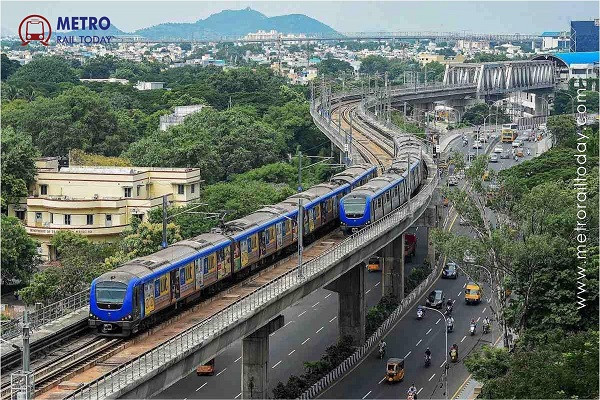 100% Precast work completed for viaduct of Chennai Metro Corridor 4
100% Precast work completed for viaduct of Chennai Metro Corridor 4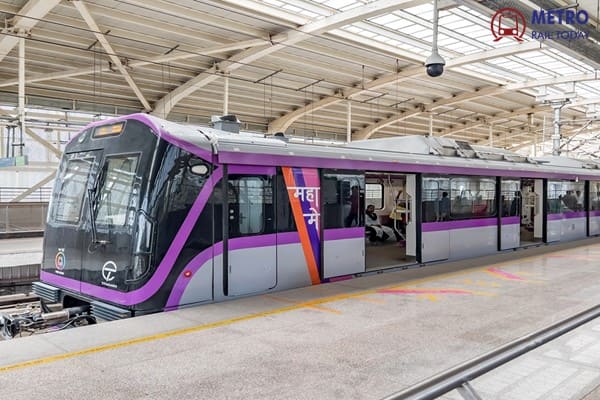 Adani Group bags ₹16.44 Billion Pune Metro Contract for Swargate–Katraj Underground Section
Adani Group bags ₹16.44 Billion Pune Metro Contract for Swargate–Katraj Underground Section MEMCO and United Trans join hands to strengthen Passenger Rail Solutions across Middle East
MEMCO and United Trans join hands to strengthen Passenger Rail Solutions across Middle East Texmaco Rail bags ₹78 Crore Orders to strengthen India’s Rail Electrification Drive
Texmaco Rail bags ₹78 Crore Orders to strengthen India’s Rail Electrification Drive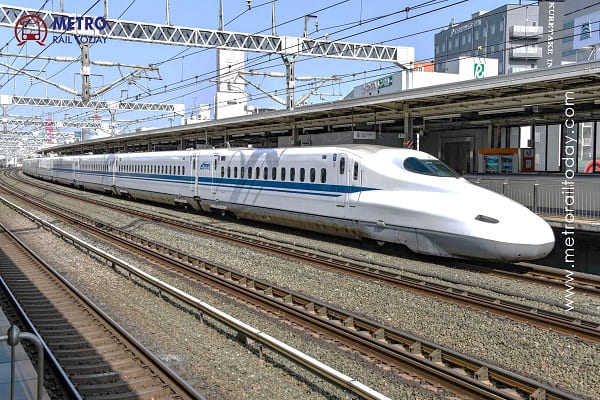 Otis India to Supply 55 Elevators and Escalators for Mumbai–Ahmedabad High-Speed Rail Corridor
Otis India to Supply 55 Elevators and Escalators for Mumbai–Ahmedabad High-Speed Rail Corridor
Chennai Metro explains on irregularities in procurement of Rolling Stock for Phase 1
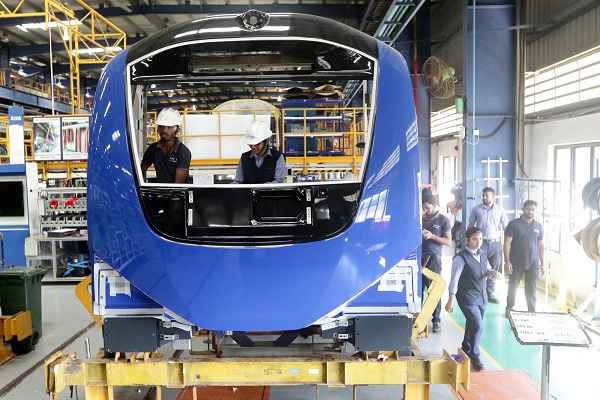
Chennai, India (Metro Rail Today): The Chennai Metro Rail Limited (CMRL) on 15th April 2023 issued a detailed clarification on allegations that the authority had procured Rolling Stock (Metro Train Coaches) for Phase 1 by giving special favour to french multinational company Alstom Transport.
It has been alleged that undue advantage was provided to Alstom Transport during the procurement of rolling stock in 2010 for Phase I project of Chennai Metro Rail Limited (CMRL), by an addendum issued on the applicability of customs duty on the trains procured. This clarification is issued to explain that the allegations are totally false and factually incorrect and to elaborate on the fair process followed, which resulted in CMRL saving hundreds of crores to the public exchequer.
The Tender Process
Chennai Metro Rail Project was a project funded by Government of India (GoI), Government of Tamil Nadu (GoTN) and the Japan International Cooperation Agency (JICA). Bids were invited for Rolling stock (trains) by CMRL for procurement of 42 trains, each consisting of 4 cars (total – 168 cars).
Pre-qualification for this tender was called on 23rd September 2009 and seven applicants applied for pre-qualification. Out of the above, the following four bidders were pre-qualified based on given pre-qualification criteria such as previous experience, financial capabilities, and manufacturing capabilities etc.
1) Alstom Transport SA, France and Alstom Projects India Ltd
2) Bombardier Transportation Gmbh, Germany & Bombardier Transportation India
3) CAF Spain- Mistubishi Consortium
4) BEML-Hyundai Rotem Consortium
Bids were invited from the pre-qualified bidders on 30th December 2009.
Of the above four bidders, Bombardier and Hyundai Rotem-BEML were having manufacturing facilities in India then. As per the bid conditions the first 9 trains (9 x 4 = 36 cars) were to be manufactured from any preexisting primary car factory of the bidders. This was to ensure the quality of trains as per the standards of original manufacturer. The remaining 33 trains (33 x 4 = 132 cars) may be manufactured in India from the existing local manufacturing partner of the original car builder or by establishing a new factory in India by the original car builder. The last date for the submission of tender was 7th June 2010.
Reasons for the issuing the addendum
After the invitation of bids, the Central government had issued a notification regarding ‘Deemed Export’ benefits for projects funded by JICA (Ministry of Finance, GoI, Notification No 1(FT)/DEA/2010 dt 5.5.2010). As per the above notification, projects funded by JICA were made eligible for ‘Deemed Exports’ benefits, meaning even if the manufacturing of products is done in India, the union excise duty exemption would be available to them, deeming them as if the products are exported to foreign countries.
It is pertinent to note that this was not a specific policy change for this project and product but was a generic direction aimed to incentivize the local manufacturing in India for products being procured for projects funded under important international funding agencies. It is well known that local manufacturing of any product in India will reduce the prices and save funds for the public procurement entity. But since the tenders had already been floated by CMRL before this notification was issued by GoI, the tender conditions needed to be amended to confer this benefit to the project and bring down the costs. Accordingly, Addendum No. 4 was issued informing all the pre-qualified bidders of the availability of ‘Deemed Exports’ benefits to the JICA projects.
Further to this Addendum 4A was issued seeking full details of tax components in the bid submission to facilitate equitable tender evaluation. In this addendum, it was also made clear that for evaluation of the bid, basic custom duty would not be considered, contrary to the allegation that customs duty was added to favour a bidder. It has been also alleged that addendums were issued after the financial bid. It is incorrect and both the addendums were issued a minimum of ten days before the last date of submission of tender. This made the bid fair, by placing all bidders on an equal pedestal and incentivized the bidders to manufacture locally.
Outcome of the tender
All the four pre-qualified bidders submitted their bids. M/s Bombardier, Germany had failed to meet one important technical criterion and hence was not technically qualified. The technical qualified bidders are as below:-
1) Alstom Transport SA, France and Alstom Projects India Ltd
2) CAF Spain- Mistubishi Consortium
3) BEML-Hyundai Rotem Consortium
Financial bids of the above three firms were opened on 5th July 2010.
Among the three qualified bidders, two had quoted as per the revised price schedule in addendum 4A, which specifically required bidders to show the basic customs duty separately. But the third, CAF Spain- Mistubishi Consortium had not done so, which was a serious violation. Hence its bid was rejected as non-responsive, as per the bid conditions. Thus, Alstom Transport SA, France and Alstom Projects India Ltd was the L1 bidder as per the bid process and not the CAF Spain- Mistubishi Consortium as has been wrongly alleged. The contract was awarded on 2nd August 2010.
It is also pertinent to point out that every stage of the tender process from the bid documents, addendums and final selection, was scrutinized and approved by JICA, in addition to the Board of CMRL, headed by the Secretary Urban development, GoI. Accordingly, the rolling stock order was awarded to Alstom, France. Alstom supplied the first 9 trains (36 cars) from their factory at Sao Paulo, Brazil and they established a new local manufacturing factory at Sri City in Andhra Pradesh and had supplied the remaining trains from the facility.
Savings to CMRL and other advantages due to the addendum
The addendum for conferring the Deemed Exports benefits resulted in reduced cost for CMRL. At the time of invitation of bids for trains for CMRL, cost of one stainless steel car was about Rs. 10 crores. Bangalore Metro had also awarded their bid at about Rs. 10 crores per car at that point in time. Due to the ‘Deemed Exports’ benefits notification by the GoI, CMRL was able to procure the rolling Stock at about 8.57 crores per car. This has resulted in a savings of about Rs 250 crores to CMRL.
In addition, the local manufacturing facilities for rolling stock had risen to three due to the new facility established by Alstom. This has resulted in greater competition and the rolling stock were manufactured fully in India at a lesser price, than compared to earlier period (of CMRL procurement. Hence, it would be clear that the granting of ‘Deemed Exports’ benefits has resulted in huge savings in rolling stock cost to all the metro rail companies/corporations.
Penal actions on the bidder and alleged links to CMRL
It has also been alleged that the selected bidder, Alstom, had faced penal action in various countries for bribing to obtain government projects, including CMRL, through shell companies. While it is true that the bidder had faced penal actions towards such inappropriate behavior, linking them to the procurement in CMRL is utterly false and malicious.
In this regard, the following facts are to be noted:-
a) In the US case, wherein Alstom agreed to pay US$772 million to resolve foreign bribery allegations, the order of the US Department of Justice clearly mentions that the bribery allegations were related to projects in Indonesia, Egypt, Saudi Arabia, the Bahamas and Taiwan. No project in India was implicated in that order.
b) In another case in UK, investigated by Serious Fraud Office (SFO), the orders have stated the company paid bribes in India, Poland and Tunisia between 2000 and 2006. CMRL did not even exist during this period and the project itself was conceived after 2007. In addition, the alleged incident in India was related to procurement only by Delhi Metro Rail Limited. The alleged shell companies, Indo European Ventures Pte Ltd and Global King Technology Ltd, have also been implicated by the UK SFO only in the Delhi Metro Project and this has nothing to do with any procurement done by CMRL.
c) If procurements by CMRL had been involved in such investigations, the concerned agencies would have approached CMRL for information. But there has been no such communication from any agency in this aspect. Hence the alleged penal actions on the selected bidder, Alstom, have nothing to do with the procurements by CMRL, which has grown into an organization of great standing and repute.
Conclusion
It is again reiterated that the procurements undertaken by CMRL have been based on fair and robust procurement practices. All the allegations raised in this regard, undue favours, indictment in overseas cases and link with shell companies are wrong and misplaced and hence are denied in toto.




